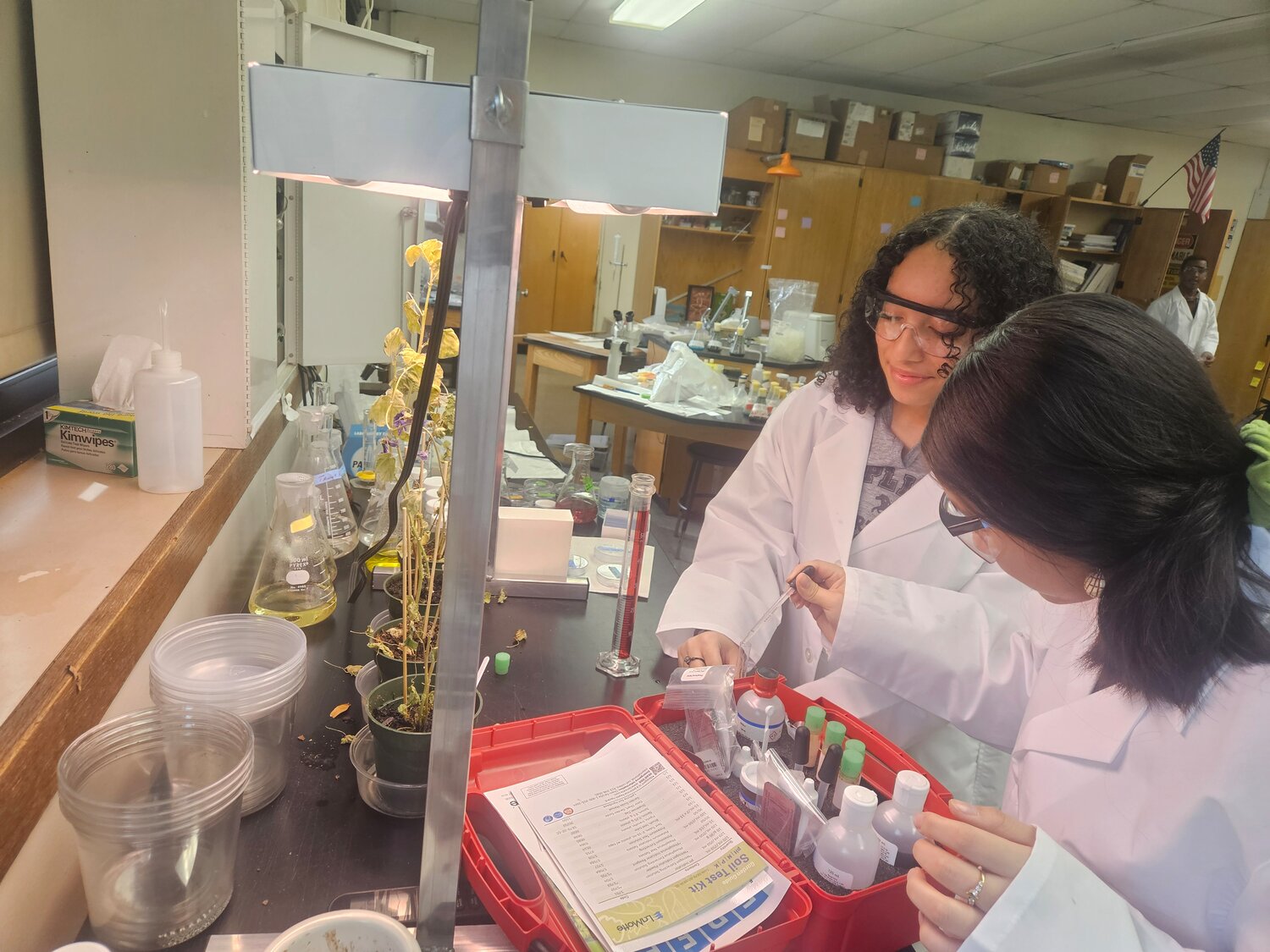Freeport H.S. science teacher wins equipment grant
Brian Snyder, the science research teacher at Freeport High School, has been awarded a grant from the Society of Science, which is devoted to the promotion of science and the vital role that science plays in human understanding of the universe.
The grant will take the shape of $1,000 worth of science equipment that will upgrade the educational and research-based tools in Snyder’s classroom, providing students with access to previously less available science research equipment.
Snyder, 37, who has worked in the Freeport School District for the past three years, has tried to promote a culture of scientific curiosity among his students.
The grant from the Washington D.C.-based non-profit Society of Science is an apparent acknowledgment of Freeport High School’s commitment to fostering scientific inquiry, and Snyder’s own personal dedication to teaching science.
For the grant, Snyder had to apply by answering several essay questions about how the school would use the equipment and benefit from the grant, as well as demographic information about Freeport Public Schools. Snyder will follow up in the future with a paper about how the equipment is being used.
Including Snyder, 41 teachers across the country received the grant.
With a background in chemistry, Snyder’s transition to teaching science research was a natural progression, driven by his desire to empower students to explore their own interests within the scientific world.
Explaining what a science research class is, Snyder said, “they use a lot of the things they learn in chemistry, biology, physics, but what they do is they learn how to do independent research and then apply it to a topic or project that they’re interested in.”
The science research project is the focus for students throughout the whole school year, with them delving deep into their chosen topic.
“It’s not just studying for a test and memorizing facts,” Snyder said. “It’s trying to solve a problem.”
Some of the projects that students are exploring include “looking at the effects of acid on different types of nanoparticles” or the effects that different types of green tea have on different kinds of bacteria.
In describing some of the new equipment that the high school won from the Society of Science, Snyder said, “there were some Arduino programming kits, there were these little pocket lab sensors that can sense force and magnetic fields and acceleration.”
An Arduino is a shell for programming and electronics. It includes a skeleton of software and hardware with which students can make a number of things.
For example, one student, Yliahna Gomez, is using the Arduino to develop an artificial kidney that will pump in liquid if blood sugar gets too high. Without the kit she wouldn’t be able to take on such a project.
In addition, the new equipment included an ecology kit that will be utilized by the high school’s earth science department.
Cassie Smith, 18, a Freeport High School currently taking the science research class, shared her enthusiasm for the freedom she’s allowed in the course.
Smith, who has taken the class each of her four years in high school, said, “I love how there’s a certain degree of independence that you take… you can always go to Mr. Snyder to get a deeper understanding of the project, but there’s also a large degree of independence, you get to form your own hypotheses and other methods that you’ll follow throughout the course.”
Smith’s project on the effects of different concentrations of acids on nanoparticles exemplifies the depth of exploration encouraged within Snyder’s classroom.
Now, with access to science research kits provided through the grant, Smith has plans to use these instruments throughout the course of her research to “further formulate data analysis” by “comparing different acids and their salt concentrations.”
The grant will also amplify the educational opportunities available to students like Smith. Otherwise, students would have to share a diminished supply of instruments, slowing down the natural progression of their projects.
“At Freeport we can’t go to Stony Brook or Brookhaven or any of these universities that might have very, very expensive equipment,” Snyder said. “We do our research in-house. So having something like this is going to make a bigger impact than it would at a school that can get to these bigger universities, these bigger labs that might have a million dollar piece of equipment.”
The grant bridges this gap, providing Freeport students with opportunities for experimentation and discovery that were previously out of reach because of affordability, proximity and accessibility.
Asked about his approach to teaching science, Snyder said, “I think more than me, it’s the students that we have… the students that I have are very interested in science and will be there after school if they can be. They’ll be working on their projects.”
With the support of organizations like the Society of Science, Snyder envisions a future where students are empowered to pursue their scientific passions and curiosity.

 43.0°,
Partly Cloudy
43.0°,
Partly Cloudy 




